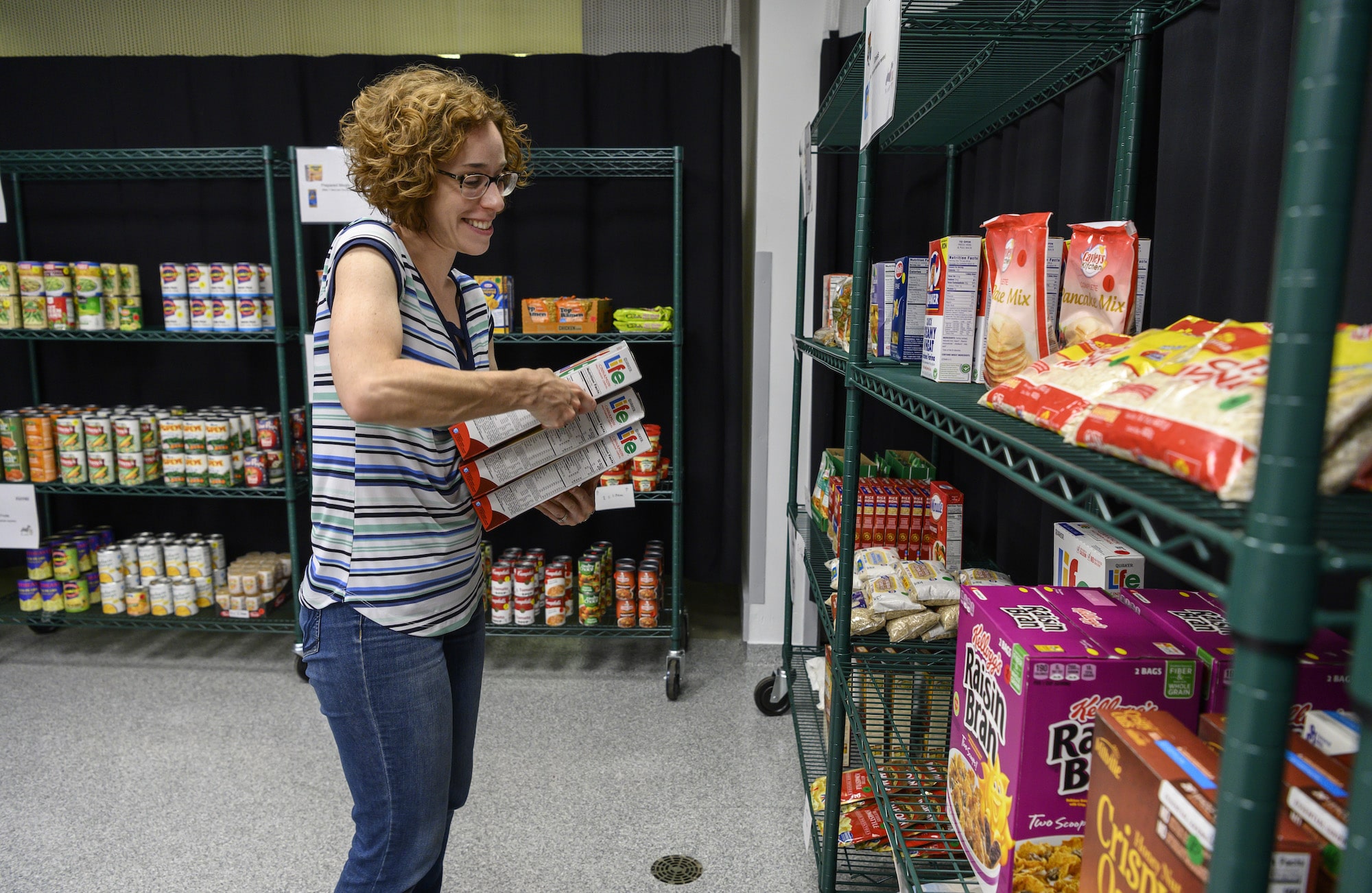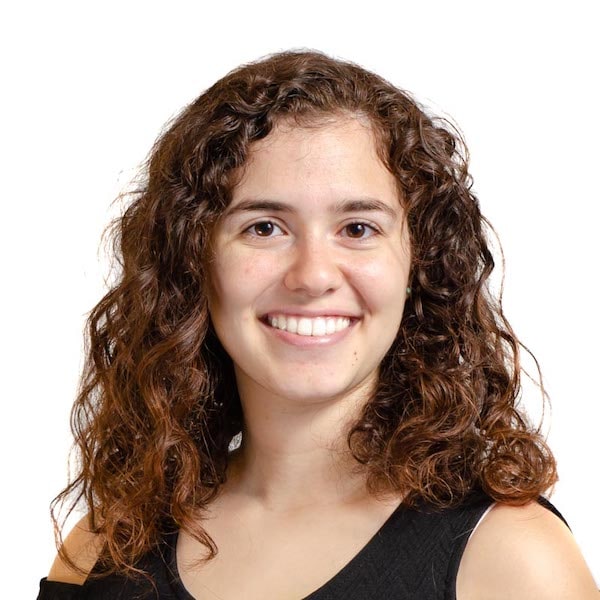Interns Innovate for Societal Impact
CMU student creates internship alternative to help solve COVID-related challenges
By Katy Rank Lev
Like many Carnegie Mellon University students this spring, Tala Habbab was scrambling to find an internship. With much of the world moved to remote operations, pickings were slim. As a master's student in the Integrated Innovation Institute, Habbab is required to complete an internship over the summer, so as she sat quarantined in her Pittsburgh apartment, she really began to think about her education and the pandemic.
"Not to sound too cheesy, but I wanted to do something more impactful than just busywork," Habbab said. A native of Jordan, Habbab was feeling the impact of the pandemic due to her ability to be with her family. She also saw a lot of challenges in the Pittsburgh community as a direct result of pandemic disruption. "I kept hearing the same thing from my friends, all struggling to find internships and also feeling a deep desire to help in some way."
Habbab felt there must be something bright college students could do to meet the dual purpose of advancing their skills with practical experience and putting their minds to work toward real societal problems.
She envisioned a "COVID-19 squad" of students who could brainstorm ideas to support communities impacted by the virus. Habbab reached out to Michael Murphy, distinguished service professor and executive director of the Center for Leadership Studies, who taught the leadership class Habbab took as an undergraduate student in materials science and biomedical engineering. Murphy helped connect her with Student Leadership, Involvement, and Civic Engagement (SLICE).
Murphy said, “Tala is such a moving exemplar of what Carnegie Mellon students do, which is to translate their vision and values into profound action — not simply lament the reality of hardship and challenge, but turn them into the opportunity to lead positive change in people’s lives in their time of need.”
"I kept hearing the same thing from my friends, all struggling to find internships and also feeling a deep desire to help in some way."
Tala Habbab, student
Incredible Global Response
Elizabeth Vaughan, associate dean of Student Affairs and director of SLICE, was delighted to learn of this creative internship alternative. SLICE had been working through the pivot to remote education, and was in the process of creating new programming that would allow CMU students opportunities for civic engagement without an in-person component.
When Habbab put together a social media post to sniff out interested students, she hoped she'd get 50 by the end of May. She had 50 responses that same day and eventually amassed 400 interested students from around the world, including CMU-Qatar and Silicon Valley students.
Habbab was able to accept 250 students and divided them into 45 teams focused on one of six action areas: economic impact, medical impact, educational quality and access, food insecurity, environmental impact or social impact. Habbab named her initiative The COVID-19 Innovation Project, and modeled the project’s structure after the methodology for project management she learned in her master's degree capstone course.
"Tala created an entire organizational structure to support her project," Vaughan said. "Given the incredible scope and student-led nature of the project, we have enthusiastically embraced the opportunity to provide advising support, connect them to relevant campus and community partners, and shift financial resources to support it."
Habbab has since organized informational lectures to help students move their projects through problem identification, solution development and solution implementation.
"All of the student projects are unique," Habbab said, noting that some of the participating students are serving with her in an executive role to help manage the 45 project teams, coordinate lectures and coach students through practical skills like developing budgets or using industry standards for research methods and building community partnerships.
"Given the incredible scope and student-led nature of the project, we have enthusiastically embraced the opportunity to provide advising support, connect them to relevant campus and community partners, and shift financial resources to support it."
Elizabeth Vaughan, associate dean of Student Affairs and director of SLICE
Learning From Community Partners
 The COVID-19 Innovation Project transitioned to its solution implementation phase in August, 2020. At that time, for example, one local team from the Pittsburgh campus was refining a project for the CMU Pantry. Utilization for the food pantry has increased due to the impacts of COVID-19 in the area and on their families. Innovation Project students are working with Pantry Coordinator Zachary Miller on an inventory management system that, in the future, they hope to link to an online order form.
The COVID-19 Innovation Project transitioned to its solution implementation phase in August, 2020. At that time, for example, one local team from the Pittsburgh campus was refining a project for the CMU Pantry. Utilization for the food pantry has increased due to the impacts of COVID-19 in the area and on their families. Innovation Project students are working with Pantry Coordinator Zachary Miller on an inventory management system that, in the future, they hope to link to an online order form.
Another team met weekly with Jim McMillan, chief engineer in the National Renewable Energy Laboratory’s Bioenergy Science and Technology Directorate, to discuss bioenergy policy, noting that vehicle emissions have been temporarily reduced, but stand to rise again as COVID-19 travel restrictions ease. McMillan helped the students define feasible goals to deliver policy memos to lawmakers.
"I was trying to find some way to combine everyone's skills and passions when we are all feeling kind of helpless. SLICE took a huge leap of faith trusting me with this project, and I'm so grateful I was able to bring all these minds together."
Tala Habbab, student
Students Gain New Perspective
Vaughan was impressed and encouraged by the teams' final project presentations. "This project was born out of students having lost opportunities and had their summer plans turned upside-down," she said. "What emerged was a tremendous amount of learning, relationship building and perspective gained from community partnerships."
Vaughan noted that student teams gained insight into the problems the identified with partner organizations and worked to pivot their plans for solutions. "Our culture is so fast-paced and I think our students are accustomed to just dive in when they identify a problem. The COVID-19 Innovation Project helped these students see complexities and intersections they hadn't considered," Vaughan said. "Our world is so polarized and this project gave students the opportunity to listen deeply and learn from community partners. I think that process is particularly powerful."
"I was trying to find some way to combine everyone's skills and passions when we are all feeling kind of helpless," Habbab said. "SLICE took a huge leap of faith trusting me with this project, and I'm so grateful I was able to bring all these minds together."

 Tala Habbab
Tala Habbab